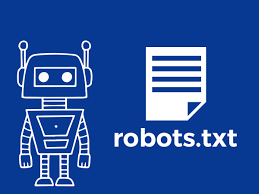
28
Is Robots.txt Necessary? Understanding Its Importance for SEO
Explore the necessity of robots.txt files for your website. This article discusses their role in SEO, when you should use them, and the potential consequences of not having one. Learn how to create and manage your robots.txt file with our free tool: Robots.txt Builder Tool.
Introduction
In the realm of search engine optimization (SEO), website owners often encounter the question: "Is robots.txt necessary?" While it may seem like a minor technical detail, the role of robots.txt files can significantly impact how search engines interact with your site. This article will delve into the importance of robots.txt files, when they are necessary, and the implications of not having one.
What Is Robots.txt?
A robots.txt file is a plain text file located in the root directory of a website that instructs web crawlers on how to interact with your site. It specifies which pages or sections should be crawled or ignored by search engine bots.
Why Robots.txt Is Necessary
- Control Over Crawling
Robots.txt files provide website owners with the ability to control how search engines crawl their site. By disallowing certain pages, you can prioritize the indexing of high-value content, improving your overall SEO. - Protection of Sensitive Information
If your website contains sensitive or private areas (like admin panels or testing environments), a robots.txt file can help prevent these pages from being crawled and indexed by search engines, safeguarding your data. - Server Load Management
For large websites, controlling the crawling behavior can help manage server load. By disallowing less important pages, you can ensure that search engine bots focus on your most critical content, reducing strain on your server. - Enhanced SEO Performance
A well-structured robots.txt file can enhance your website’s SEO performance by ensuring that only relevant and high-quality pages are indexed, helping you rank better in search engine results.
When Is Robots.txt Not Necessary?
While robots.txt files are beneficial, they may not be necessary for every website. Consider the following scenarios:
- Small Websites
If your site is small and contains only a few pages, you may not need a robots.txt file. Search engines can typically crawl all pages without issue. - Content That Should Be Indexed
If all your content is valuable and should be indexed, a robots.txt file may not be needed, as you want search engines to crawl everything. - Static Content
For websites that don't frequently change and have no sensitive information, a robots.txt file may not be essential.
Potential Consequences of Not Having Robots.txt
- Unwanted Pages Indexed
Without a robots.txt file, search engines may index pages you don't want to appear in search results, such as duplicate content, admin pages, or irrelevant sections of your site. - Wasted Crawl Budget
Search engines have a limited crawl budget for each site. If your less important pages are being crawled, it may lead to wasted crawl resources that could have been spent on indexing your valuable content. - Security Risks
In the absence of a robots.txt file, sensitive or private pages might be exposed to search engines, increasing the risk of unauthorized access to that information.
Conclusion
While robots.txt files may not be necessary for every website, they offer significant benefits for those looking to optimize their SEO and control how search engines interact with their content. If you're considering implementing a robots.txt file, be sure to utilize our free tool to create and manage it: Robots.txt Builder Tool. Taking control of your website's crawling behavior can enhance your SEO performance and protect your valuable content!
Contact
Missing something?
Feel free to request missing tools or give some feedback using our contact form.
Contact Us